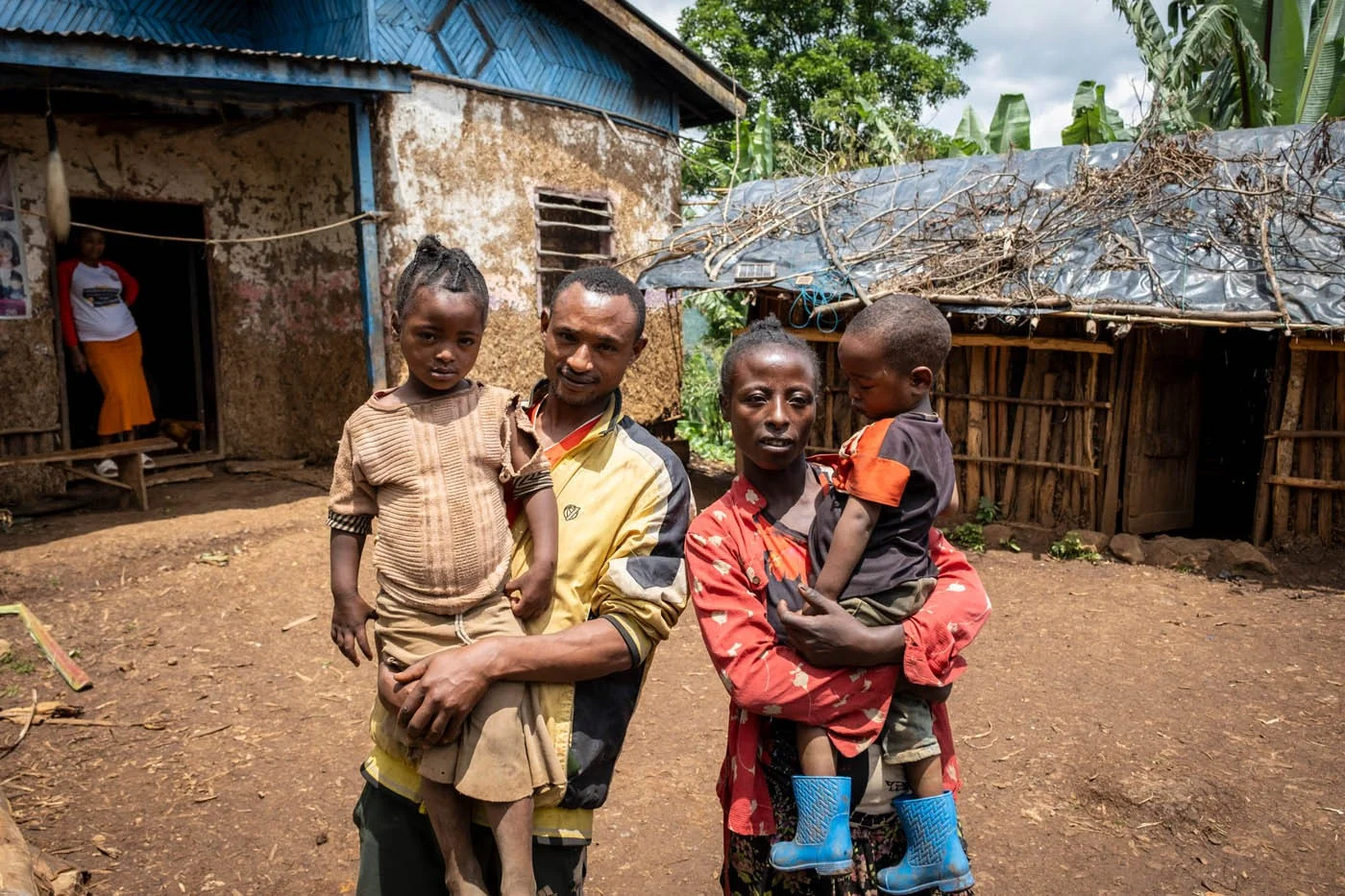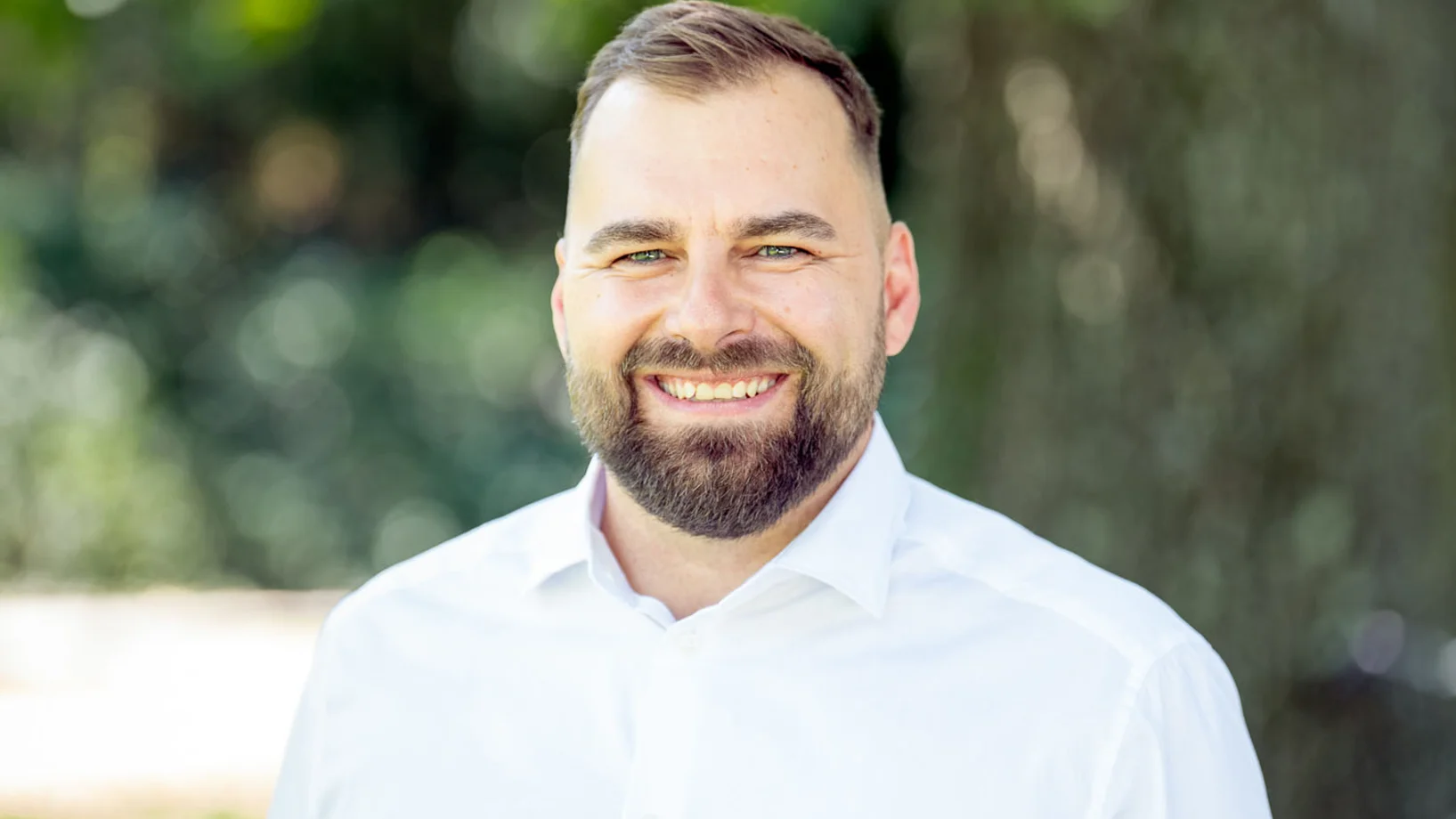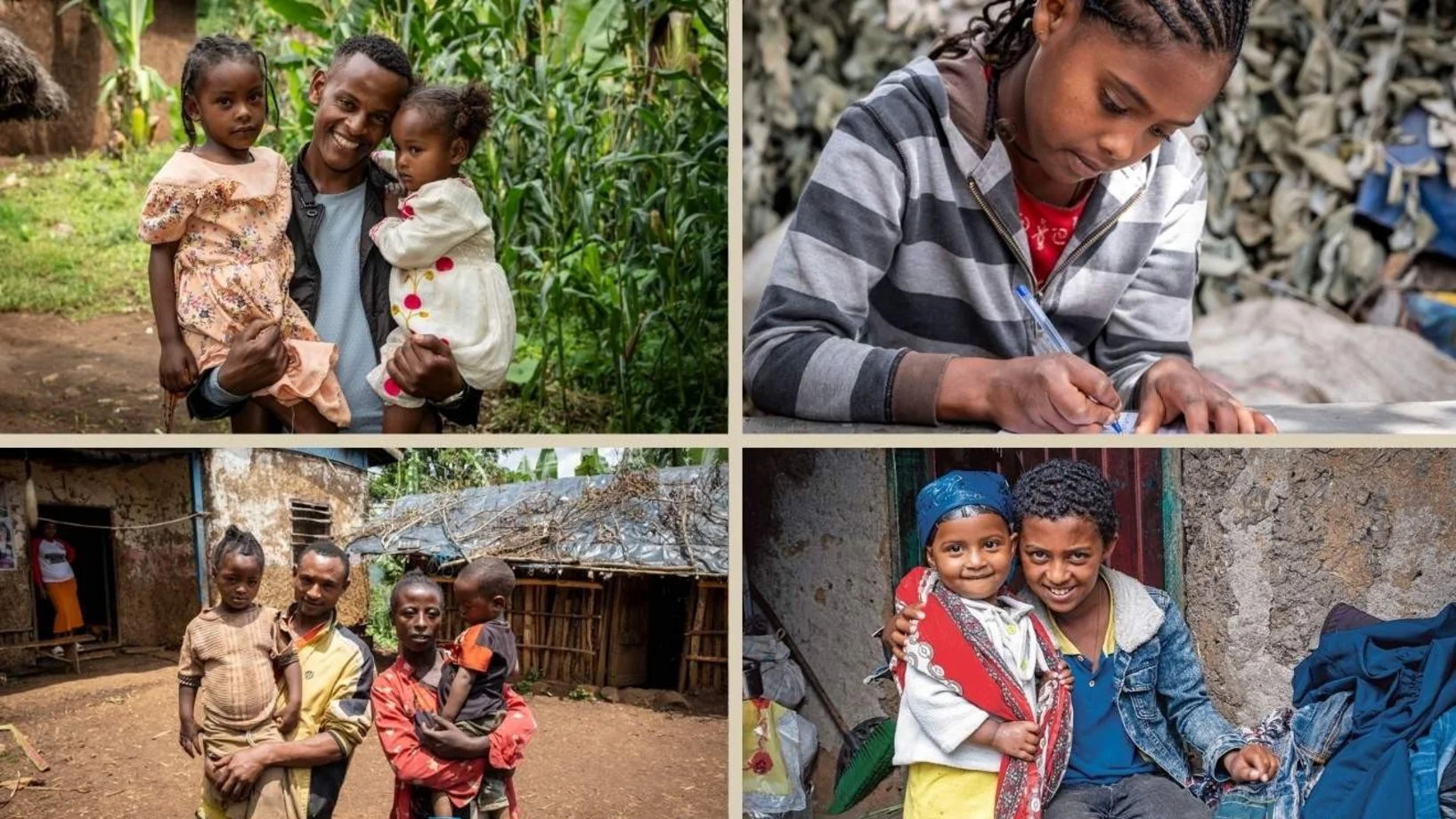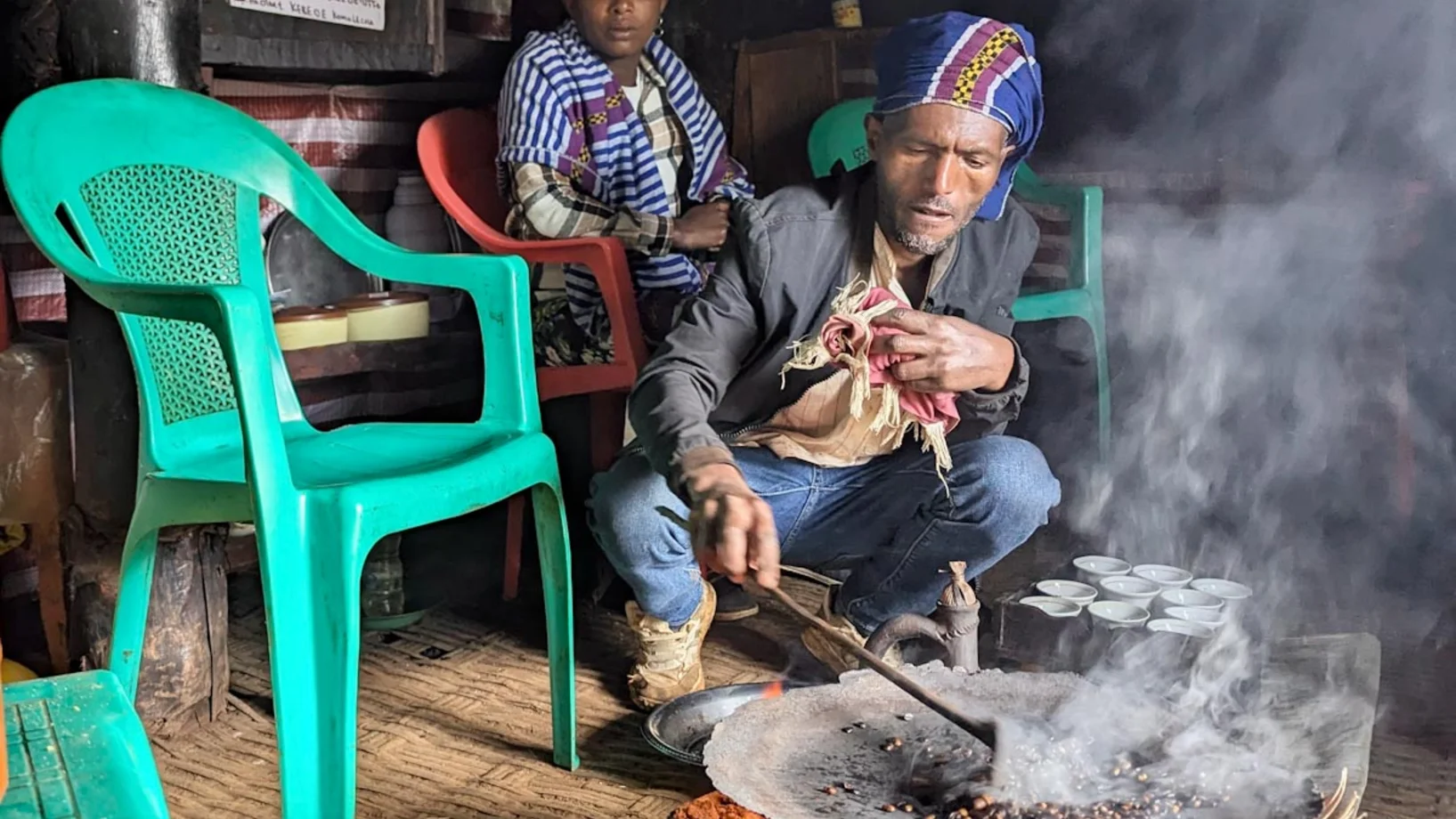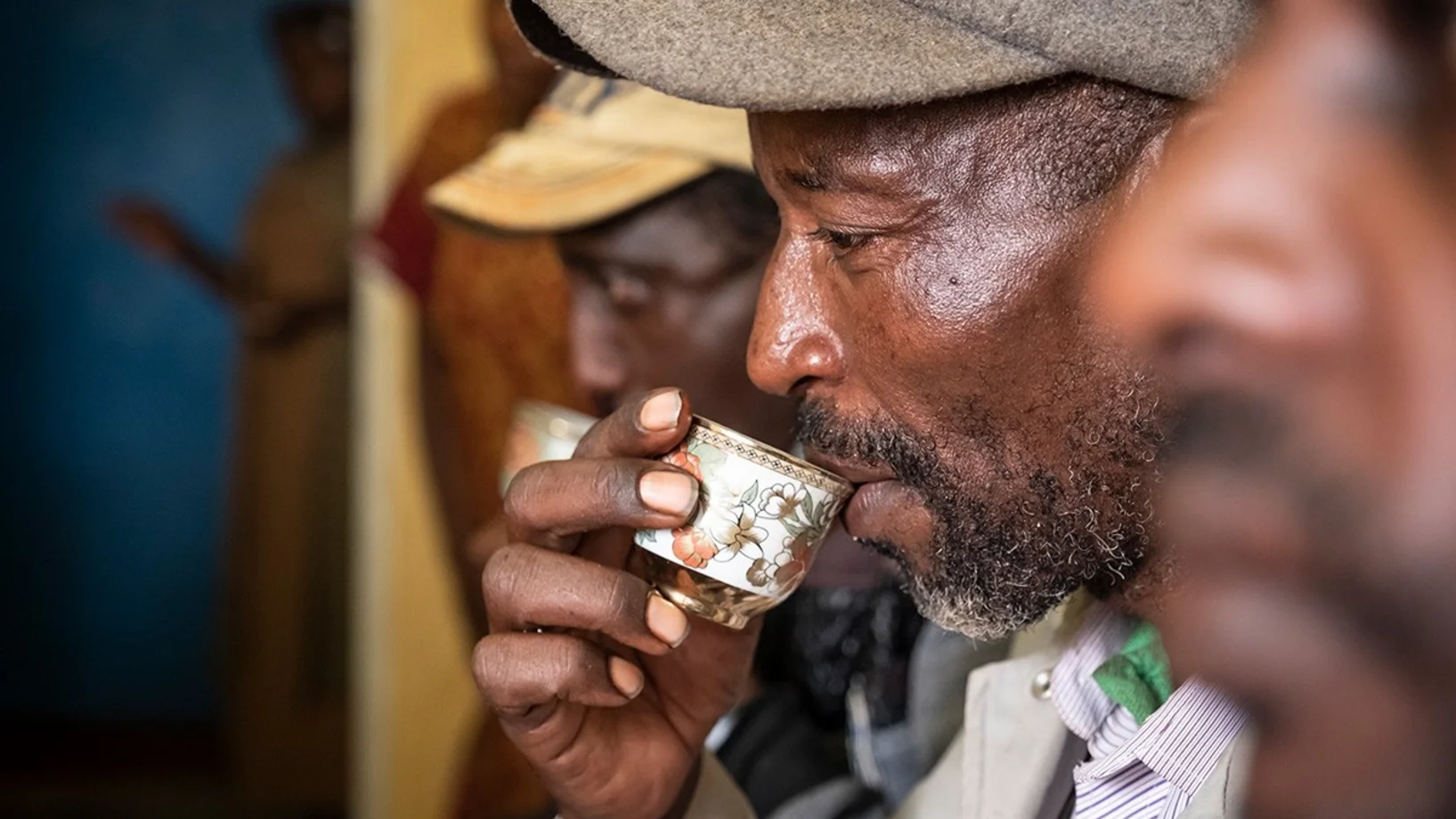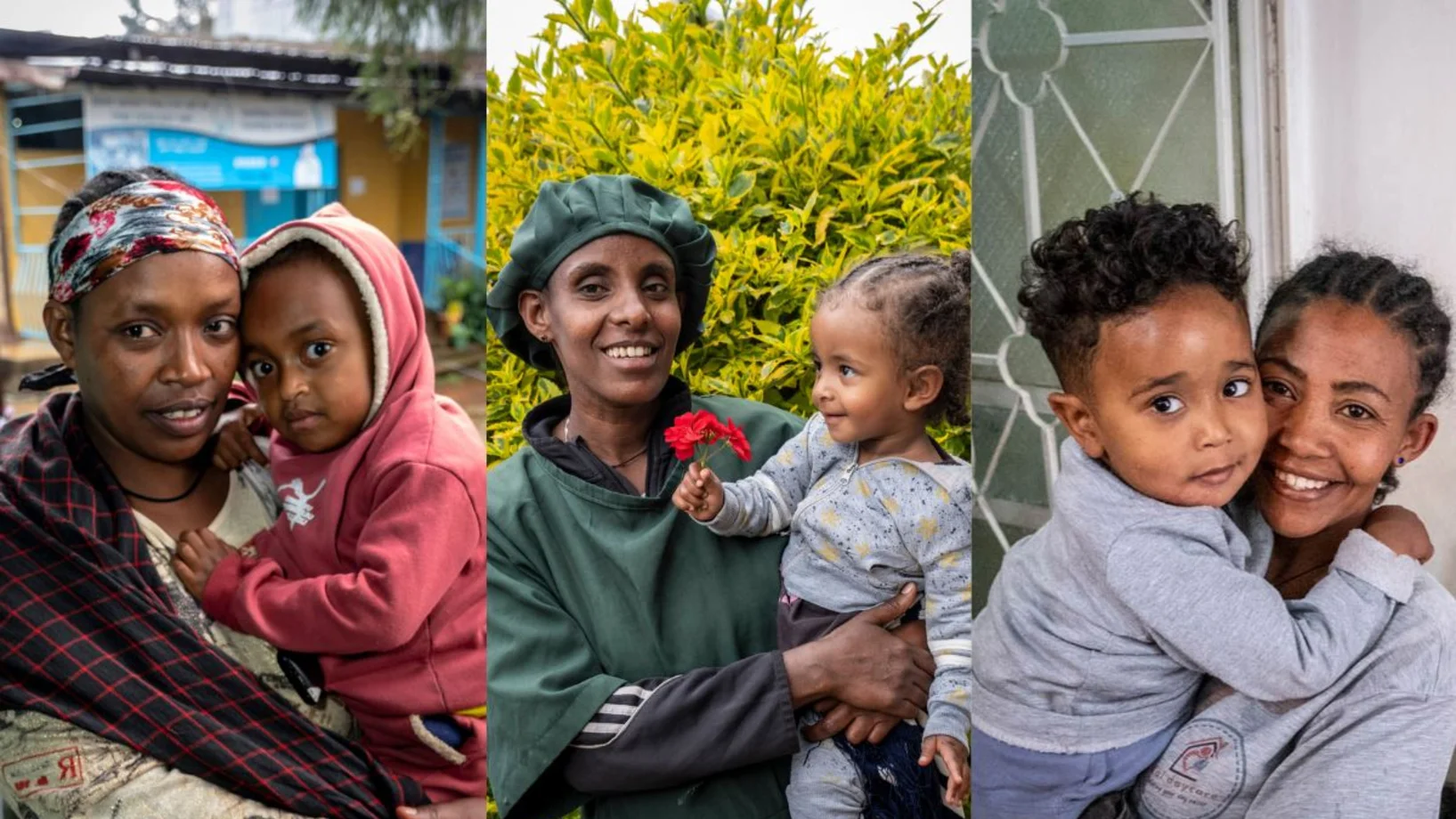Zurich / Raphe, September 4, 2025 - In the Raphe district of southern Ethiopia, members of the Gedeo people live in one of the most impressive agricultural systems in the world - the UNESCO-listed forest gardens. But the balance has been shaken. Although the Gedeo are known for their industriousness and solidarity, many families can no longer feed themselves and their children.
It is not a place where you would expect to go hungry. Giant trees line the slopes, their crowns reaching up to 30 meters into the sky. The famous Ethiopian forest coffee thrives beneath them, protected by the shade of the ensete shrubs, whose huge leaves glow in the sunlight. On the ground: Beans, cabbage, potatoes. The Gedeo in southern Ethiopia cultivate their land using a centuries-old system of layered agriculture - agroforestry. Their productivity is astonishing. And yet many houses and huts in the Raphe district suffer from shortages and hardship.
Just like Wude Sisay and her husband Sisay Beraso in the village of Halemo. Both are in their mid-twenties and have two small children. The family lives in a hut made of wooden beaters with a roof made of plastic sheeting. Street dust seeps through the cracks. "There were many days when we had nothing to eat," says Wude. "Not even the children. "
The reason for this is a lack of land. Like many young families, the couple do not have their own forest garden. Raphe is about the size of the canton of Appenzell Innerrhoden, but six times as densely populated. The plots get smaller with each generation - and many families are left empty-handed. Sisay is one of nine siblings. His father cannot give him a plot of land, he needs the land himself.
Usurious interest rates of 100 percent
Sisay works as a day laborer. His daily wage is the equivalent of 63 centimes - not enough to feed a family. Wude worked for a long time in the production of kotcho, a staple food made from the ensete shrub. She was paid with residual quantities. With no land and no access to financial services, the couple were trapped in a cycle of dependency. Private money lenders charged usurious interest rates of 100 percent a year. "We didn't want to keep turning to Sisay's father," says Wude. "We were ashamed. "
For centuries, there were enough resources for everyone. But the system is out of balance. The population in Raphe is growing rapidly - with each generation the land becomes scarcer, the plots smaller. "The people here remind us of traditional Switzerland," says Michael Kesselring, Co-Managing Director of Menschen für Menschen. "They live in a mountainous landscape, work hard and persistently, show great community spirit - and operate a sustainable land use system that has grown over generations. But now they need support. That's why we are the first and only aid organization working in Raphe."
Menschen für Menschen focuses on increasing agricultural yields - and on the women: "We set up savings groups in every community, organize training courses and support the women as they take their first entrepreneurial steps into their own microenterprises."
Family planning is crucial
Wude Sisay has already received her first microloan of 45 francs. She used it to buy unripe avocados at the market. After a week of ripening, she sells them on at a 20 percent mark-up. The next goal is to buy sheep and sell their lambs at church festivals - when prices rise. Family planning is also specifically supported. "Many couples want to space their births," says Claudio Capaul, Co-Managing Director of Menschen für Menschen. Although the state theoretically offers contraceptives, they are often not available in the remote health centers. "That's why we now use our vehicles to bring the preparations to where they are needed." Wude has had a hormone stick inserted. It protects against pregnancy for three years. "We have to concentrate on our future now," she says. "We can't afford to have a third child."
Particular adversities
The work on the ground is a challenge. There is no adequate accommodation of a minimum standard, no restaurants, no stores. "But as a small organization, we want to help where others can't," says Capaul. "That's why our employees take on particular adversity."
A total of 3,600 particularly poor families are to be reached. In each community, Menschen für Menschen trains twelve volunteer family planning advisors. More efficient seeds are being introduced, small farms are being optimized for the market and tree seedlings are being distributed. To improve the water supply, the project is building 15 new wells.
Wude Sisay, whose children often had to go to bed without dinner until recently, is confident: "My husband is a hard worker. I'm also working hard." The start-up aid from training courses and microloans would lead the family out of the poverty trap: "In two years, we will have a better house and we will be able to provide our children with everything they need - food, clothes, school supplies."
About the Menschen für Menschen Foundation
Menschen für Menschen is committed to fighting poverty and hunger. The foundation was established by the actor Karlheinz Böhm (1928 - 2014). In the spirit of its founder, the Swiss aid organization creates prospects for the poorest families in Ethiopia. The aim of the work is to enable them to live in dignity in their home country. The individual projects focus on promoting women, vocational training, microcredits, child aid, family planning and agricultural development. The components are combined according to local needs and implemented with carefully selected local partners.
Download the picture in HD quality and the media release (in German) as PDF here:
